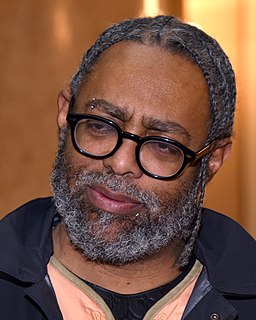A Quote by Pam Grier
I'm still trying to do films about black women.
Related Quotes
When you say 'the man of the house,' the black woman has been the woman and the man of the house, because black men have so often had to spend all of their time and energy working and trying, at least, to give their families the basic needs. So black women, I find, are not really concerned about women's liberation.
There are many things that black women can continue to do to help black folk. First, black women have historically been among the most vocal advocates for equality in our community. We must take full advantage of such courage by continuing to combat the sexism in our communities. Black women, whether in church, or hip-hop, don't receive their just due. Second, when black women are in charge of child-rearing, they must make ever so sure to raise black children who respect both men and women, and who root out the malevolent beliefs about women that shatter our culture.
Whenever black women have a point, they're characterized as angry black women, and therefore the thing they're talking about is no longer of importance because they have to deal with them being overly emotional or something. I recognize that people who respond negatively to what I have to say aren't at a place yet where they are able to learn ... And it's exactly what I'm trying to fight.
I wanted to make sure the focus [in The Land] was on human beings themselves and their decisions, but still connected to the urban environment that people associate as being black. I think I was able to make a film without commenting on "black this or black that" and you still feel the presence of it. There's no one character who's saying "we're all black and we're all in this struggle." It's that you just feel it. Some of that is because we get the sense from a lot of independent films that black people struggle all the time.
The potential significance of Black feminist thought goes far beyond demonstrating that African-American women can be theorists. Like Black feminist practice, which it reflects and which it seeks to foster, Black feminist thought can create a collective identity among African-American women about the dimensions of a Black women's standpoint. Through the process of rearticulating, Black feminist thought can offer African-American women a different view of ourselves and our worlds
See, the first thing about actors is, you're just trying to get a job; and you audition and audition and you finally get them. And you still consider yourself an auditioning actor. I auditioned for One Fine Day, I wasn't offered that. So you're still in that 'Hey, I'm just trying to get a job' thing. Then, you get to the point where, if you decide to do it, then they'll make the film. That's a different kind of responsibility, and it usually takes a couple of films to catch up. And then you have to actually pay attention to the kind of films that you're making.


































